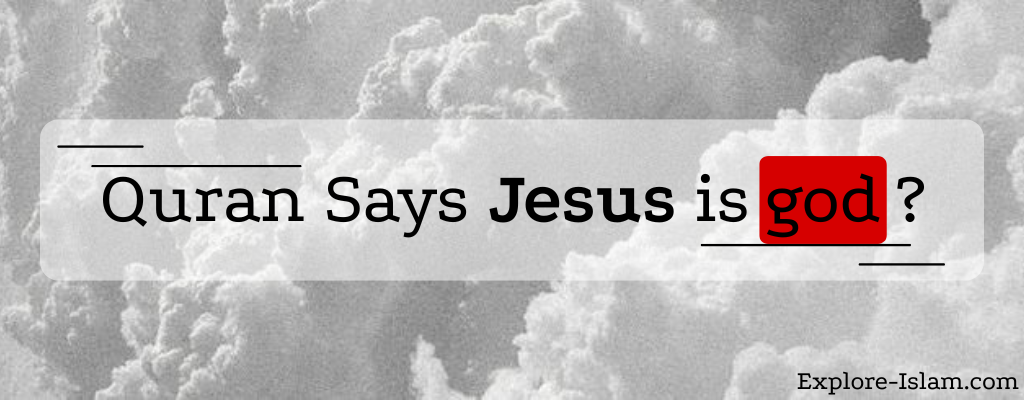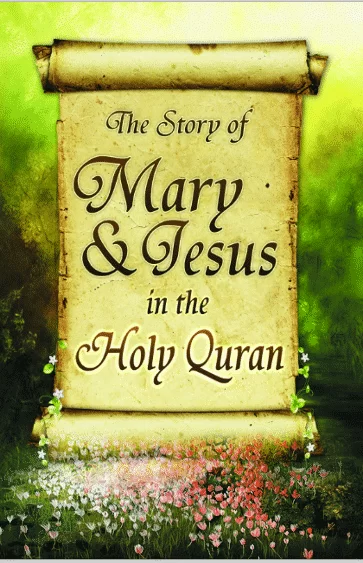The question of whether Islam believes in the virgin birth of Jesus is an important topic to study. In Islam, the story of Jesus’ virgin birth is acknowledged and respected as a miraculous event, but with some distinctions from the Christian perspective. Muslims believe that Mary was a virgin when she gave birth to Jesus and that Jesus had no biological father, but without associating any divinity to either of them.
Below, we will examine Islam’s view on Jesus’ birth and how it differs from the Christian perspective in key aspects. These aspects discussed below are the role of the Holy Spirit in the virgin birth of Jesus, the wisdom behind Jesus being born miraculously, and whether God (Allah) is directly involved in this. Then, we will explore the important question: Does Islam believe in the Virgin Mary? Finally, we will discuss if Muslims celebrate Jesus’ birth.
How Do Islam and Christianity View The Virgin Birth Of Jesus Christ?
In Christianity, the virgin birth of Jesus refers to the belief that Jesus was conceived in the womb of his mother, Mary, without a human father but with the intervention of the Holy Spirit, and that Mary was a virgin at the time of Jesus’ conception. The virgin birth of Jesus is one reason why Christians associate divinity to Jesus as being the Son of God.
In Islam, the virgin birth of Jesus is acknowledged as a sign of God’s limitless power, but with the understanding that Jesus remains a human prophet and servant of God. So Islam believes that Jesus had no father and that Mary was a virgin when she gave birth to him, but does not grant Jesus any kind of divinity.
Jesus is often referred to in the Quran and the Hadith of Prophet Muhammad (peace be upon him) as “Isa ibn Maryam” (Jesus, son of Mary), highlighting his human and maternal lineage.
The Role Of The Holy Spirit In The Virgin Birth Of Jesus
In Christianity, this miraculous event of Jesus’ virgin birth took place through the Holy Spirit who is considered the third person of the Trinity. The angel Gabriel told Mary that the Holy Spirit would come upon her, and the power of the Most High would overshadow her, resulting in her conception of Jesus. So Christians believe that the Holy Spirit and the angel Gabriel are two different beings with two different missions concerning this miraculous event.
“The angel answered: ‘The Holy Spirit will come on you, and the power of the Most High will overshadow you. So the holy one to be born will be called the Son of God.’”
In Islam, the Holy Spirit is, in fact, the angel Gabriel who came to Mary to accomplish a mission: to tell her that she would give birth to a son who has no father. So he was only a messenger from God with the good tidings of the birth of Jesus. The conception was done by the mighty power of Allah with the words “‘Be!’ And he was!”
(Quran, 3:59).
This is one reason why most Muslim scholars believe Jesus is called “The Word of Allah” in Islam. They interpret this title to mean that Jesus was brought into existence through Allah’s will and command, without the need for a father.
This concept is evident in the Quran:
“Remember when the angels proclaimed, “O Mary! Allah gives you good news of a Word from Him, his name will be the Messiah, Jesus, son of Mary…”
What Is The Wisdom Behind Jesus Being Born Miraculously?
In Christianity, the virgin birth is directly tied to the belief in Jesus’ divine nature as the Son of God. It is integral to the Doctrine of the Incarnation, which holds that Jesus is both fully God and fully human. His birth from a virgin is seen as a sign that he was not just an ordinary human but the Son of God.
In Islam, Jesus is regarded as one of the greatest prophets, but he is not considered the Son of God. Islamically, the virgin birth is seen as a sign of God’s power and mercy, and it is believed to be a miraculous event that reflects God’s ability to create life in any way He wills. While the virgin birth is a miraculous sign, it does not imply divinity for Jesus in Islam.
Also, it was a sign for the Children of Israel, whose arrogant belief in their abilities—particularly in the field of science—had grown significantly at the expense of their spiritual belief in one Omnipotent God. So Jesus was sent to them as a reminder of God’s power and to make them reflect that no matter how scientifically advanced they were, they were still unable to bring a baby into life with no father (Jesus was the example).
Is God Directly Involved?
Christians believe in the Divine Intervention. They view the virgin birth of Jesus as a supernatural event, showcasing God’s direct involvement in the world to the extent that He sent His own Son, embodying Himself in the world.
In Islam, Allah is detached from His creation. In other words, Allah is not “part” of His creation. Also, He has no son, father, mother, family, etc., and “There is nothing like Him, for He ˹alone˺ is the All-Hearing, All-Seeing”
(Quran, 42:11).
Does Islam Believe In The Virgin Mary?
Yes, Islam does believe in the Virgin Mary; that Mary [Maryam] (peace be upon her) was a virgin when Jesus was conceived and when she gave birth to him. Muslims also look up to Mary as one of the purest women in history. The Quran clearly states that Mary was chosen and purified by Allah. However, while she is deeply revered, Islam does not attribute any divinity to her.
Do Muslims Celebrate Jesus’ Birth?
No, Muslims do not celebrate the birth of Jesus, just as they do not celebrate the birth of any other prophet of God, since the main focus in Islam is to worship Allah alone. It is all about God and never about an individual, regardless of whether that individual was Jesus or even Prophet Muhammad (peace be upon both of them).
However, this does not mean that Muslims do not respect, love, and honor all the prophets of Allah, as they were the most noble of all men and the ones chosen by Allah to deliver the Message of Monotheism.
Conclusion
To wrap up, while Islam does recognize the virgin birth of Jesus Christ, the theological context and understanding of Islam are different from that of Christianity. Muslims believe that Mary was a virgin when she gave birth to Jesus. However, all of this is seen as a miracle from Allah to affirm that Allah does whatever He wishes, even if there are no rational reasons.
In Islam, neither Jesus nor Mary (peace be upon both of them) is attributed divinity because of the virgin birth. Being born without a father does not make Jesus divine, nor does giving birth to a child without male intervention grant Mary any form of divinity.











